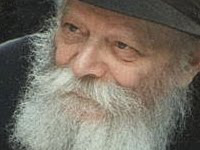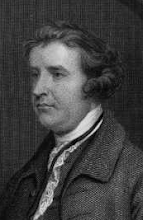Sunday, June 7, 2009
D-Day, June 6, 1944 - Could the "D" Possibly Stand for "Decision?"
WA man, 85, remembers parachuting on D-Day
By JIM CAMDENTHE SPOKESMAN-REVIEW
SPOKANE, Wash. -- Two things Ray Batten remembers about D-Day: It was postponed a day, and when he finally did get to France, he spent his initial time up in a tree.
"I remember the anticipation, the waiting, waiting, waiting," said Batten, a Spokane resident who was a member of the 101st Airborne that parachuted into France 65 years ago, in the early-morning hours of June 6, 1944.
The paratroopers, who had been confined to their marshalling area in England for weeks, geared up to leave on June 5, but the weather was so bad the Allied invasion of Europe was put off for a day.
Twenty-four hours later, packing the explosives he needed to blow up German communications stations and rail lines, Batten headed for the transport plane. "I had so much weight on me I couldn't get into the plane by myself," said Batten, now 85.
Getting out of the plane wasn't as difficult. When the signal light went on, the paratroopers stood up, hooked to the "static line" and moved to the open hatch. The light changed, and they stepped out into a black night punctuated by anti-aircraft artillery flashes.
"It was like jumping into the middle of a big fireworks show," Batten said.
He floated down, but didn't hit the ground. Instead, his parachute caught in a tall tree, and he hung there. For how long, he's not even sure.
"There was fireworks going all around on the ground, and here I am swaying back and forth in a tree," he said. Even a round that only grazed him could set off the explosives. "My only hope, I thought, was to play dead."
Batten, a Virginia native, left school in early 1942 and enlisted in the Army at 18. He volunteered for parachute school, and later trained as a forward artillery spotter. Until a few months before D-Day, he was an instructor in the United States, but as the Allies began concentrating forces for the invasion, he was sent to England to join the 101st Airborne, which was to be dropped into France hours before the amphibious landings on the Normandy beaches.
The night before the invasion, the paratrooper units were given their missions and their "drop zones," or landing targets.
"You never land in your drop zone that's the bite," he said.
But Batten had an even bigger problem. He didn't even land on the ground. He played dead for what "seemed like ages," until the ground below him got quiet, then he unhooked his parachute harness and lowered himself down a rope.
He reached the end and still couldn't see the ground.
"I remember saying a short prayer, and dropping." Not so far, as it turned out, and there was no one around.
Batten linked up with other paratroopers, many of whom had similar experiences, and they began to make their way between the fields, and around the areas the Germans had flooded to trap invading forces.
The soldiers were so far from their intended targets that their commanders had to gather up whomever they could find and improvise. Batten doesn't think he blew up any of his intended targets, but he and the paratroopers he was with made their way to Ste. Mere-Eglise, the city inland from the coast that was the gathering point for the 101st. They suffered heavy losses in fighting through Normandy until mid-July, when they were sent back to England for rest and training for another mission.
Batten parachuted into Holland later that September in a joint mission with the British known as Operation Market Garden. He was at the Battle of the Bulge that December, where he was wounded and suffered frostbite in his feet from so many days in the snow. He was sent to a hospital in Paris for three months, and was supposed to be sent home.
"I ran away from the hospital, to go back to my outfit," he said. "I wasn't through with the war yet."
When the war ended in May, they were in Berchtesgaden, Adolf Hitler's mountain retreat, searching for Nazi leaders. He drank some of Hermann Goering's stash of wine when the unit captured the air marshal's private railroad car.
"Looking back, I've often thought I hide the things I don't like to remember. I had buddies die in my arms," he said. "But the things I remember and like to preserve are the fun things."
When the war ended, Batten was shipped back to the United States.
He tried to re-enlist when the Korean War started, but the Army turned him down. He worked for Standard Oil, helped build the Yellowstone Pipeline and became a consulting engineer and a contractor, building defense projects and service stations. Of all the places he worked throughout the West, he liked Spokane best and settled into a house he built on the South Hill, where he's lived for more than half a century.
When he watches Hollywood depictions of D-Day and the battles in Europe, he adds his own personal commentary to the television set. Some are very true to life, such as "Band of Brothers," a book made into an HBO series about the 101st Airborne's 506th Regiment, a unit he spent some time with. But some of the depictions are "a bunch of crap" and he'd like to write his own book to straighten things out.
The biggest misconception he thinks exists about soldiers on D-Day: "That we even knew what we were doing."
-------------------------------------------------------------------------------------
From: soule>I was born a year before WWII ended. My Dad, Americal Division, knew up close and personal what war was all about. As he and his buddies slogged their way through the jungles of New Caledonia, Guadelcanal, he contracted malaria, lost most of his teeth and witnessed much that he did not wish to share, but only after he had "come to grips" with it. He spoke to my husband of watching haplessly as incoming mortar rounds took out his buddy behind him and his buddy in front of him. They were "blown to smithereens." He was left, unscathed. You can imagine what he was covered in. His comment to my husband, "gives one a new perspective on life." This is called duty, this is called courage, this is called self-sacrifice so that others could be set free. This is history. This war was about fighting a barbaric, ruthless, evil, unrelenting enemy-Adolph Hitler. It took years and much sacrifice but evil was finally overcome. How much of this "history" is being taught in our public schools today? What about the history of the Korean War? How did it start and why are we still there? Better yet, what about the American Revolution and how it all led up to the founding of this country, the United States of America? In just twenty years the rest of the WWII generation, the descendants of those war heroes who left wives, sons and daughters behind, to go to war to liberate a people who underwent unspeakable horror will also be "just a memory." Who or what will be this country's standardbearer? Where will this country be at that time? Will the U.S. be completely taken over by the "globalists?" Will we forget about our Judeo-Christian heritage in favor of Islam? Or, will we still be a sovereign nation, with liberty and freedom for all? It all depends on you and I, right here, right now. We have some decisions to make (2010 comes to mind) and they cannot be made with our own self-interests in mind. We have families, and this country has a legacy of making hard choices when it comes to defending freedom and liberty, not only here but abroad. It is going to depend greatly on who we elect to office whether it be local, county, state or federal. If we do not like the direction this country is going then for the sake of the Almighty and the Founders, and those who paid the ultimate price, so I can sit here at my keyboard and pour my heart out to you, then let's keep in mind their sacrifices. Thank you, Dad, for your stellar service to your country and to all the rest of our military "heroes."
By JIM CAMDENTHE SPOKESMAN-REVIEW
SPOKANE, Wash. -- Two things Ray Batten remembers about D-Day: It was postponed a day, and when he finally did get to France, he spent his initial time up in a tree.
"I remember the anticipation, the waiting, waiting, waiting," said Batten, a Spokane resident who was a member of the 101st Airborne that parachuted into France 65 years ago, in the early-morning hours of June 6, 1944.
The paratroopers, who had been confined to their marshalling area in England for weeks, geared up to leave on June 5, but the weather was so bad the Allied invasion of Europe was put off for a day.
Twenty-four hours later, packing the explosives he needed to blow up German communications stations and rail lines, Batten headed for the transport plane. "I had so much weight on me I couldn't get into the plane by myself," said Batten, now 85.
Getting out of the plane wasn't as difficult. When the signal light went on, the paratroopers stood up, hooked to the "static line" and moved to the open hatch. The light changed, and they stepped out into a black night punctuated by anti-aircraft artillery flashes.
"It was like jumping into the middle of a big fireworks show," Batten said.
He floated down, but didn't hit the ground. Instead, his parachute caught in a tall tree, and he hung there. For how long, he's not even sure.
"There was fireworks going all around on the ground, and here I am swaying back and forth in a tree," he said. Even a round that only grazed him could set off the explosives. "My only hope, I thought, was to play dead."
Batten, a Virginia native, left school in early 1942 and enlisted in the Army at 18. He volunteered for parachute school, and later trained as a forward artillery spotter. Until a few months before D-Day, he was an instructor in the United States, but as the Allies began concentrating forces for the invasion, he was sent to England to join the 101st Airborne, which was to be dropped into France hours before the amphibious landings on the Normandy beaches.
The night before the invasion, the paratrooper units were given their missions and their "drop zones," or landing targets.
"You never land in your drop zone that's the bite," he said.
But Batten had an even bigger problem. He didn't even land on the ground. He played dead for what "seemed like ages," until the ground below him got quiet, then he unhooked his parachute harness and lowered himself down a rope.
He reached the end and still couldn't see the ground.
"I remember saying a short prayer, and dropping." Not so far, as it turned out, and there was no one around.
Batten linked up with other paratroopers, many of whom had similar experiences, and they began to make their way between the fields, and around the areas the Germans had flooded to trap invading forces.
The soldiers were so far from their intended targets that their commanders had to gather up whomever they could find and improvise. Batten doesn't think he blew up any of his intended targets, but he and the paratroopers he was with made their way to Ste. Mere-Eglise, the city inland from the coast that was the gathering point for the 101st. They suffered heavy losses in fighting through Normandy until mid-July, when they were sent back to England for rest and training for another mission.
Batten parachuted into Holland later that September in a joint mission with the British known as Operation Market Garden. He was at the Battle of the Bulge that December, where he was wounded and suffered frostbite in his feet from so many days in the snow. He was sent to a hospital in Paris for three months, and was supposed to be sent home.
"I ran away from the hospital, to go back to my outfit," he said. "I wasn't through with the war yet."
When the war ended in May, they were in Berchtesgaden, Adolf Hitler's mountain retreat, searching for Nazi leaders. He drank some of Hermann Goering's stash of wine when the unit captured the air marshal's private railroad car.
"Looking back, I've often thought I hide the things I don't like to remember. I had buddies die in my arms," he said. "But the things I remember and like to preserve are the fun things."
When the war ended, Batten was shipped back to the United States.
He tried to re-enlist when the Korean War started, but the Army turned him down. He worked for Standard Oil, helped build the Yellowstone Pipeline and became a consulting engineer and a contractor, building defense projects and service stations. Of all the places he worked throughout the West, he liked Spokane best and settled into a house he built on the South Hill, where he's lived for more than half a century.
When he watches Hollywood depictions of D-Day and the battles in Europe, he adds his own personal commentary to the television set. Some are very true to life, such as "Band of Brothers," a book made into an HBO series about the 101st Airborne's 506th Regiment, a unit he spent some time with. But some of the depictions are "a bunch of crap" and he'd like to write his own book to straighten things out.
The biggest misconception he thinks exists about soldiers on D-Day: "That we even knew what we were doing."
-------------------------------------------------------------------------------------
From: soule>I was born a year before WWII ended. My Dad, Americal Division, knew up close and personal what war was all about. As he and his buddies slogged their way through the jungles of New Caledonia, Guadelcanal, he contracted malaria, lost most of his teeth and witnessed much that he did not wish to share, but only after he had "come to grips" with it. He spoke to my husband of watching haplessly as incoming mortar rounds took out his buddy behind him and his buddy in front of him. They were "blown to smithereens." He was left, unscathed. You can imagine what he was covered in. His comment to my husband, "gives one a new perspective on life." This is called duty, this is called courage, this is called self-sacrifice so that others could be set free. This is history. This war was about fighting a barbaric, ruthless, evil, unrelenting enemy-Adolph Hitler. It took years and much sacrifice but evil was finally overcome. How much of this "history" is being taught in our public schools today? What about the history of the Korean War? How did it start and why are we still there? Better yet, what about the American Revolution and how it all led up to the founding of this country, the United States of America? In just twenty years the rest of the WWII generation, the descendants of those war heroes who left wives, sons and daughters behind, to go to war to liberate a people who underwent unspeakable horror will also be "just a memory." Who or what will be this country's standardbearer? Where will this country be at that time? Will the U.S. be completely taken over by the "globalists?" Will we forget about our Judeo-Christian heritage in favor of Islam? Or, will we still be a sovereign nation, with liberty and freedom for all? It all depends on you and I, right here, right now. We have some decisions to make (2010 comes to mind) and they cannot be made with our own self-interests in mind. We have families, and this country has a legacy of making hard choices when it comes to defending freedom and liberty, not only here but abroad. It is going to depend greatly on who we elect to office whether it be local, county, state or federal. If we do not like the direction this country is going then for the sake of the Almighty and the Founders, and those who paid the ultimate price, so I can sit here at my keyboard and pour my heart out to you, then let's keep in mind their sacrifices. Thank you, Dad, for your stellar service to your country and to all the rest of our military "heroes."
Subscribe to:
Post Comments (Atom)














































No comments:
Post a Comment